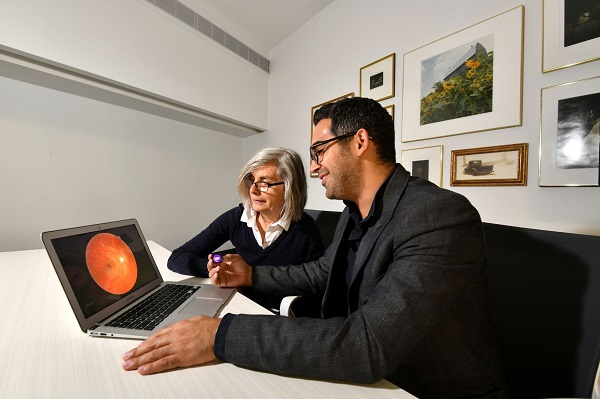By Margaret DeRosia
In Fall 2020, the Centre for Aging + Brain Health Innovation (CABHI) launched a Call for Innovations for its Mentorship, Capital and Continuation (MC2) program. MC2 Market Readiness sought early-stage companies creating solutions for aging adults in the healthtech space. The program addresses critical innovation gaps, not only by providing early-stage companies with direct access to two leading global accelerators, CABHI and Berkeley SkyDeck, but also by helping companies unlock funding to achieve their specific business milestones.
More than 50 companies applied, which indicates a thriving Ontario healthtech sector invested in building solutions for aging adults. Given that the pandemic has had a disproportionate impact on older adults’ lives, it is encouraging to see the scope of companies tackling these needs in-depth.
Semi-finalists were invited to pitch last autumn, and now CABHI is proud to announce the program’s six winning companies. They are currently (and virtually) participating in Berkeley SkyDeck, which offers access to the Silicon Valley ecosystem and a Pitch Showcase event, at which CABHI’s innovators may have the opportunity to pitch their solution to world-leading investors, buyers, industry leaders, and advisors. Typically, two out of every three companies that participate in this Pitch Showcase receive venture funding to scale and grow.
Meet the six companies below!
Axem Neurotechnology’s proprietary system consists of a portable functional near-infrared spectroscopy device paired with tablet-based software. Together, they guide physical rehabilitation to promote the brain’s ability to repair itself. Stroke rehabilitation providers need to improve patient outcomes without exceeding costs, but few effective treatment options are covered by payers. Axem’s technology can help providers better personalize and monitor stroke rehabilitation, which will improve patient outcomes, guide resource allocation, and fit existing reimbursement pathways in the United States, allowing for incremental clinic revenue. Axem’s solution strives to enhance the accessibility and efficacy of rehabilitation conducted of older adults in the comfort of their own homes, having the potential to bridge the rural-urban divide in cognitive rehabilitation.
Braze Mobility has created the first blind spot sensor system that turns any wheelchair into a smart wheelchair, automatically detecting obstacles and providing multi-modal alerts to users. The system increases safe and independent mobility, and also widens access to powered mobility devices for those currently excluded due to safety concerns (such as those with vision and/or cognitive impairment). Through increased spatial awareness and safety, Braze’s product allows older adults with mobility impairment to continue to remain independent and mobile, both at home and in a care setting.
Cosm Medical has developed a novel and proprietary ultrasound-based measurement system. They are also creating a digital platform by combining it with data science and 3D printing to provide women with gynethotics made for their specific body and needs. Incontinence and prolapse are one of the major leading causes that prevent aging women from being able to live at home. Cosm’s digital urogynecology platform will modernize the business of urogynecology while personalizing care for millions of sufferers, so that more can live and age with dignity and grace.
Rehabtronic’s solution, Prelivia, uses a patented technology called Intermittent Electrical Stimulation (IES). IES induces brief muscle contractions, which actively increases blood circulation and tissue oxygenation that prevents pressure-induced ischemia, deep-tissue injuries, and full-thickness pressure injuries. The product comprises a stimulator and disposable electrodes placed directly on the skin or an optional garment. Rehabtronics aims to address the issue of pressure-induced symptoms that disproportionately affect the elderly, as pressure-induced symptoms cause extended hospitalization and delays in rehabilitation.
RetiSpec enables early detection of Alzheimer’s Disease (AD) with accessible and scalable screening. Through a quick eye exam, RetiSpec facilitates timely and accurate diagnosis of AD, which may improve patient outcomes, both now and when effective treatments become available – as early as early 2021, with Biogen’s Aducanamab (under FDA review). Ultimately, an AD diagnosis requires confirming the presence of amyloid beta (Aβ) biomarkers. RetiSpec’s RS1 system can provide timely and reliable biomarker status information with comparable accuracy to the gold standard PET at a fraction of the cost.
Trualta is a web-based education platform to help families build skills to manage care at home for a loved one with cognitive decline, Alzheimer’s Disease, or dementia. Trualta partners with social service organizations, healthcare providers, and payers across the US and Canada to provide professional-level educational content and training methodologies for the untrained, family caregiver audience. Topics include personal care; dementia care; safety and injury prevention; and caregiver wellness. Families access the program through an on-demand, personalized learning management system purpose-built for the family caregiver. Staff at partner agencies have dashboard features to co-brand, track engagement, personalize learning, and assess outcomes.
Visit cabhi.com for updates on these and other companies in the CABHI portfolio.
Margaret DeRosia is the Senior Communications Specialist, The Centre for Aging + Brain Health Innovation.


